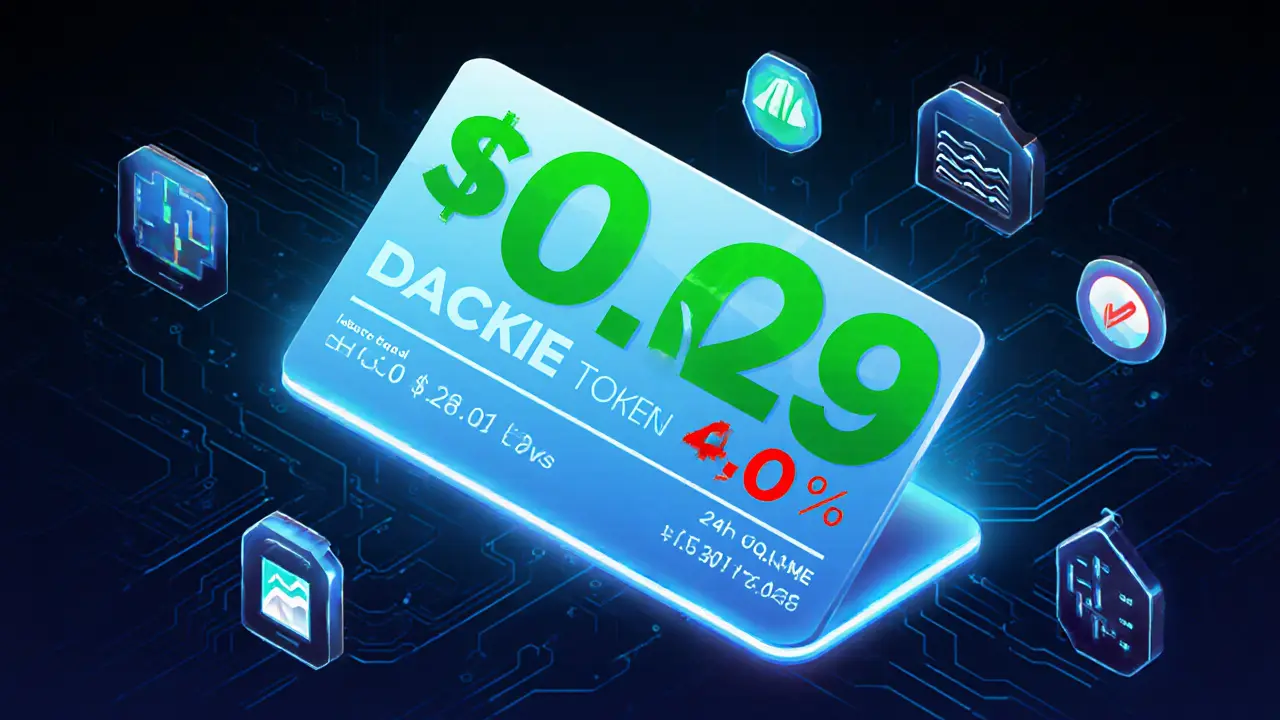Everything You Need to Know About DackieSwap
When working with DackieSwap, a decentralized exchange platform that lets users swap tokens directly from their wallets without a middleman. Also known as Dackie Swap, it operates on public blockchains, uses smart contracts to automate trades, and rewards liquidity providers with native tokens. In plain language, DackieSwap lets you trade crypto assets 24/7, keep full control of your keys, and avoid the fees and delays typical of centralized services. This openness also means the platform can integrate new assets quickly, which is why many crypto projects list their tokens on DackieSwap right after launch.
Why Liquidity Pools Matter on DackieSwap
One of the core building blocks of any DEX is the Liquidity Pool, a collection of token pairs locked in a smart contract that provides the capital needed for swaps. Liquidity pools enable instant price discovery and eliminate order‑book matching, so you get a quote the moment you hit ‘swap’. On DackieSwap, each pool follows the constant‑product formula (x * y = k), which guarantees that larger trades slightly shift the price, rewarding providers with a share of the transaction fees. The platform also offers incentives like yield farming, where providers earn extra tokens on top of fees. This model creates a virtuous cycle: more liquidity leads to better rates, which attracts more traders, which in turn draws more providers. In short, DackieSwap depends on liquidity pools to keep the market fluid, and the pools depend on users to stay profitable.
Behind every swap is a Smart Contract, self‑executing code that enforces the rules of a trade without human intervention. When you click ‘swap’, the contract checks that you have enough of the input token, calculates the output amount based on the pool’s current balance, and then moves the assets atomically. This atomicity guarantees that you either receive the new token or the transaction reverts, protecting you from partial fills or front‑running. Smart contracts also handle fee distribution, liquidity token minting, and any special features like time‑locked swaps or multi‑hop routes across different blockchains. Because the code is open‑source, anyone can audit it, and upgrades are governed by token holders, making the system both transparent and adaptable.
Governance plays a subtle yet powerful role on DackieSwap. The platform issues a Governance Token, a crypto asset that gives holders voting rights on protocol upgrades, fee structures, and new pool launches. Token holders propose and vote on changes, ranging from tweaking swap fees to adding support for new blockchain networks. This democratic process means the ecosystem evolves based on community consensus rather than a single corporate decision‑maker. As a result, DackieSwap can quickly respond to market trends, integrate emerging standards, and roll out cross‑chain bridges that let you move assets between Ethereum, Binance Smart Chain, and Layer‑2 solutions. The synergy between smart contracts, liquidity pools, and governance tokens creates a self‑sustaining engine that keeps the exchange competitive and secure.
Below you’ll find a curated set of articles that break down each of these pieces in more detail. From step‑by‑step guides on providing liquidity to deep dives on tokenomics and regulatory considerations, the collection is designed to give you actionable insights whether you’re just starting out or looking to fine‑tune your DEX strategy. Dive in and see how DackieSwap can fit into your crypto journey.

DackieSwap (DACKIE) Explained: What the Crypto Coin and DEX Do
Sep 24, 2025, Posted by Ronan Caverly
Learn what DackieSwap is, how its DACKIE token works, AI routing features, market performance, risks, and step‑by‑step usage for this niche decentralized exchange.
MORESEARCH HERE
Categories
TAGS
- decentralized exchange
- crypto exchange
- crypto exchange review
- crypto coin
- crypto airdrop
- cryptocurrency
- CoinMarketCap airdrop
- cryptocurrency trading
- smart contracts
- tokenomics
- DeFi
- cryptocurrency exchange safety
- crypto airdrop 2025
- cryptocurrency airdrop
- cryptocurrency exchange
- MiCA
- crypto airdrop guide
- blockchain token distribution
- crypto token
- Portugal crypto tax
